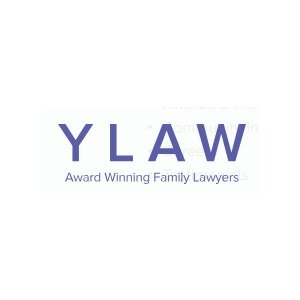Best Climate Change Law Lawyers in Vancouver
Share your needs with us, get contacted by law firms.
Free. Takes 2 min.
List of the best lawyers in Vancouver, Canada
About Climate Change Law in Vancouver, Canada
Climate Change Law is an evolving field in Vancouver, Canada that focuses on legal measures aimed at mitigating and adapting to the effects of climate change. This area of law involves regulations and policies at the municipal, provincial, and federal levels, which address issues like greenhouse gas emissions, carbon trading, energy efficiency, land use, transportation, and sustainable development. In Vancouver, climate change initiatives are especially significant due to the city’s environmental leadership and its ambitious green policies. Legal frameworks here not only strive to protect the environment but also support businesses, organizations, and individuals in understanding their rights and responsibilities regarding climate action.
Why You May Need a Lawyer
There are numerous situations where individuals, businesses, or community groups in Vancouver might need the advice or representation of a climate change law lawyer. Common scenarios include:
- Complying with new municipal and provincial greenhouse gas regulations
- Participating in carbon credit or trading systems
- Evaluating environmental risks and liabilities associated with real estate development or land use
- Responding to governmental climate policy proposals or enforcement actions
- Engaging in sustainability reporting or disclosures as a requirement for public or private projects
- Navigating climate change-related disputes or litigation
- Seeking approvals for renewable energy projects
- Supporting public interest or community-based climate initiatives
- Understanding Indigenous and Aboriginal rights in relation to land use and climate policy
- Staying updated on changes to local or national climate change legislation
A climate change law specialist ensures compliance, helps manage risk, and advocates on behalf of clients’ interests.
Local Laws Overview
Vancouver is well-known for its progressive approach to combating climate change. Key local legal frameworks include the City of Vancouver’s Climate Emergency Action Plan, zoning bylaws that promote sustainable construction, and aggressive building performance regulations. Provincially, the CleanBC plan and the Climate Change Accountability Act obligate emission reductions and reporting. On a federal level, the Canadian Net-Zero Emissions Accountability Act commits Canada to achieving net-zero greenhouse gas emissions by 2050, impacting local governments, businesses, and individuals across Vancouver.
Other relevant laws and policies involve:
- Municipal restrictions on fossil fuel heating systems
- Energy efficiency requirements for buildings
- Carbon tax programs administered by the province
- Policies on zero-emission vehicles and sustainable transit
- Environmental assessment requirements for major projects
- Green infrastructure incentives and regulations
Understanding these complex and overlapping legal regimes is crucial for anyone whose activities may affect the environment in Vancouver.
Frequently Asked Questions
What is Climate Change Law?
Climate change law is a field of legal practice that addresses rules and policies relating to the mitigation of and adaptation to climate change. This includes laws that govern emissions, sustainable development, energy usage, and environmental protection.
How does Vancouver regulate greenhouse gas emissions?
The City of Vancouver has its own regulations, including building codes and transportation guidelines, alongside provincial and federal laws. The CleanBC plan and provincial carbon tax also play key roles in emissions regulation.
What responsibilities do businesses in Vancouver have regarding climate change?
Businesses in Vancouver may be required to comply with emissions reporting, energy efficiency standards, zoning regulations, and sustainability disclosures. Some also participate in carbon credit or offset programs.
Are there incentives for renewable energy projects in Vancouver?
Yes, Vancouver offers various incentives such as grants or streamlined permitting for renewable energy installations. These programs are often updated, so legal advice is recommended to access the latest options.
Can individuals be held liable for climate-related infractions?
Individuals can face fines or enforcement actions for certain infractions, such as violating local bylaws about prohibited heating systems or improper waste disposal.
How do climate change laws affect real estate development?
Developers must meet increasingly strict environmental standards, including green building regulations, energy efficiency requirements, and environmental assessments for major projects.
What is the role of Indigenous rights in climate change law?
Indigenous rights are highly relevant, particularly regarding land use and resource management. Consultation and accommodation are legal requirements in projects affecting Indigenous territories.
How are transportation and mobility addressed in local climate policies?
Vancouver supports low-carbon transportation options through investments in public transit, cycling infrastructure, and mandates for zero-emission vehicles.
Do homeowners have obligations under climate change laws?
Homeowners may need to comply with energy efficiency upgrades, restrictions on fossil fuel heating, or participate in city climate programs aimed at waste reduction and sustainable living.
How often do climate change laws change in Vancouver?
Laws and regulations are evolving rapidly as government policies adapt to new climate science and international commitments. Staying informed or seeking legal guidance is important for ongoing compliance.
Additional Resources
For those seeking legal advice or more information on climate change law in Vancouver, the following resources may be helpful:
- City of Vancouver Sustainability and Climate Programs
- Government of British Columbia - CleanBC Initiative
- Federal Government of Canada - Environment and Climate Change Canada
- British Columbia Environmental Appeal Board
- Local organizations such as the Environmental Law Centre at the University of Victoria
- Professional associations like the Canadian Bar Association’s Environmental, Energy and Resources Law Section
These organizations can provide guidance, educational materials, and updates on changing climate laws and resources for further assistance.
Next Steps
If you feel you might need legal assistance with climate change law in Vancouver, consider the following steps:
- Identify the specific legal issue or question you have
- Gather any relevant documents or information, such as permits, correspondence, or policies
- Contact a local lawyer or law firm with experience in environmental or climate change law
- Schedule a consultation to review your situation and get professional advice
- Use government and community resources for further information or to seek referrals
Taking proactive steps can ensure you understand your obligations and rights under Vancouver’s climate change laws and help you contribute positively to environmental goals while protecting your interests.
Lawzana helps you find the best lawyers and law firms in Vancouver through a curated and pre-screened list of qualified legal professionals. Our platform offers rankings and detailed profiles of attorneys and law firms, allowing you to compare based on practice areas, including Climate Change Law, experience, and client feedback.
Each profile includes a description of the firm's areas of practice, client reviews, team members and partners, year of establishment, spoken languages, office locations, contact information, social media presence, and any published articles or resources. Most firms on our platform speak English and are experienced in both local and international legal matters.
Get a quote from top-rated law firms in Vancouver, Canada — quickly, securely, and without unnecessary hassle.
Disclaimer:
The information provided on this page is for general informational purposes only and does not constitute legal advice. While we strive to ensure the accuracy and relevance of the content, legal information may change over time, and interpretations of the law can vary. You should always consult with a qualified legal professional for advice specific to your situation.
We disclaim all liability for actions taken or not taken based on the content of this page. If you believe any information is incorrect or outdated, please contact us, and we will review and update it where appropriate.










